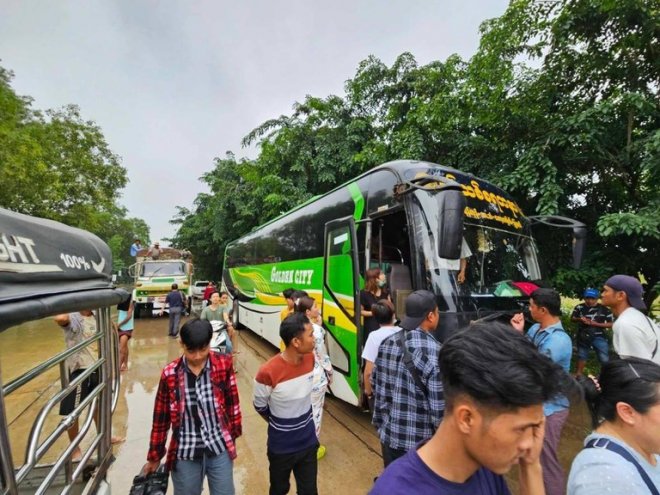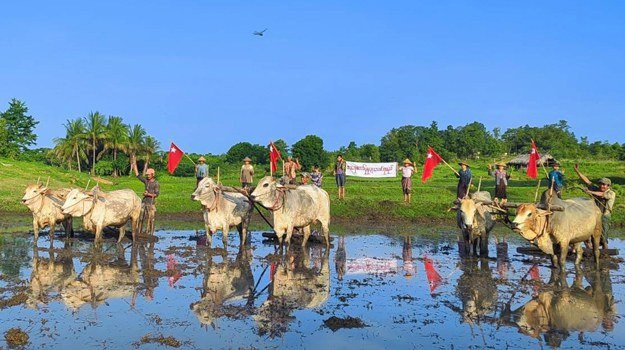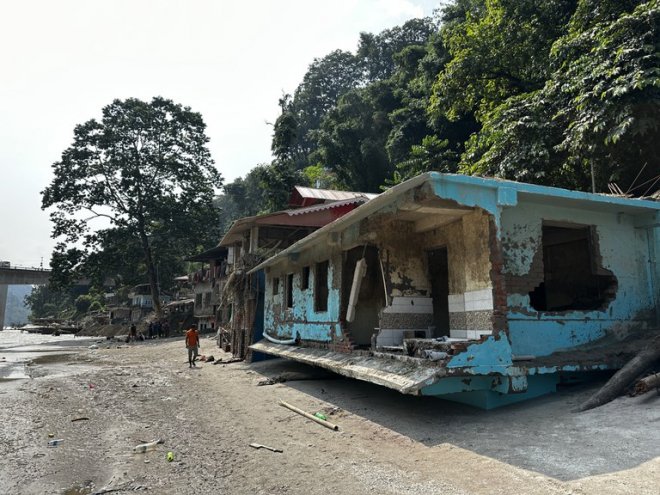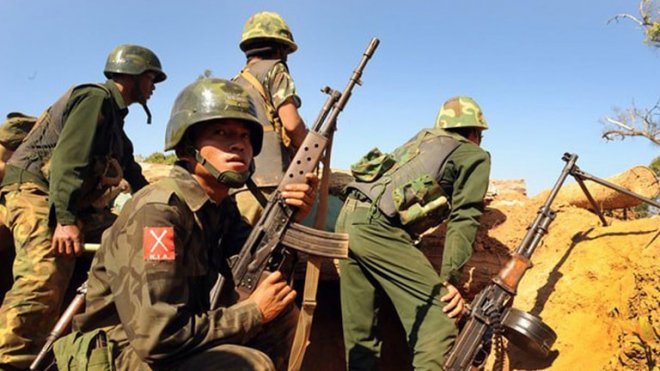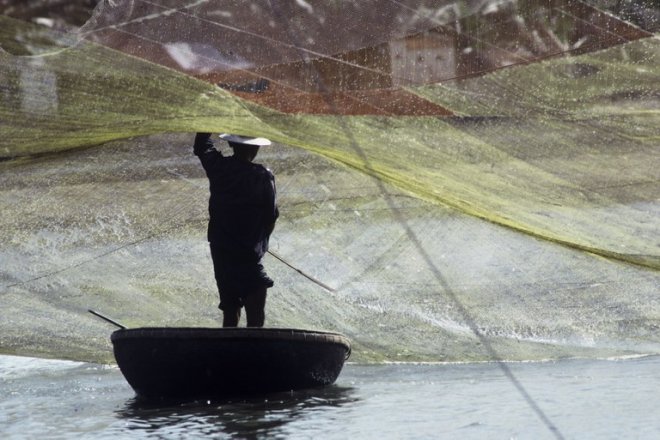Lao villagers worry that compensation for Pak Beng Dam will be too low
Local authorities in Laos last week met with villagers who will be affected by the Pak Beng Dam project to discuss compensation, but the villagers worry that the government’s offer will be too low, sources in the country told Radio Free Asia.The dam, located in northwestern Laos’ Bokeo province on the Mekong River, is an integral part of Laos’ ambitious, controversial goal to become the “battery of Southeast Asia” by using the river to generate electricity and selling it to neighboring countries.
The Pak Beng Dam is one of three Mekong River mainstream dam projects that have completed review processes and are eligible to begin construction. Two others, the Xayaburi Dam and the Don Sahong Dam, are currently operational. Four more proposed projects are in various stages of planning.
Critics of Laos’ hydroelectric pursuits point to the environmental and social impacts associated with the large-scale mainstream dams, and a chief complaint is that the dams will displace people and ruin the livelihoods of river-based communities.
The authorities of Bokeo province’s Pak Tha district last week talked with villagers about compensation rates for land, homes, fruit trees and other crops, an official of the province’s Energy and Mines Department, who like all other unnamed sources in this report requested anonymity for safety reasons, told RFA’s Lao Service.
“At the meeting, we discussed doing some more surveys, collecting information about property and the location of resettlement villages,” the official said. “We haven’t paid any compensation yet because we don’t have all the information.”
The official explained that residents of 17 Bokeo province villages will lose their land, fruit trees and other crops; and some villagers will be relocated to new villages.
“As for compensation, we’ll base it on the actual social and economic situation in the area and on the same policy that was used for the Xayaburi dam project.”
The compensation process for Laos’ first completed Mekong mainstream dam was not smooth. Though the Xayaburi dam was completed and went into operation in 2019, RFA reported two years later that displaced villagers still lacked farmland and access to water.
Will it be enough?
Villagers living near the site where Pak Beng will be built have demanded 150 million kip ($8,844) per hectare (2.47 acres), a resident told RFA.
“I don’t know whether we’ll get that much or not,” the villager said. “Until now, the dam developer and the Lao authorities haven’t responded to our demands. The company and the Lao government should take into account the loss of our rice fields and our fruit trees.”
He said that proper compensation is necessary for people who are about to lose everything.
“In other words, the compensation should be fair for us,” he said. “The government offers are usually too low, and we shouldn’t be the losers here.”
The government was not specific enough during the discussions, another villager said.
“They said they were going to build new homes for us, but they haven’t said anything about other kinds of compensation,” the second villager said. “We haven’t yet been informed of any details of the new place and the compensation by the dam developer or by the Lao authorities.”
In a different village, discussions on compensation haven’t happened in months.
“We don’t know where we’re going to move or even how we’re going to move,” the third villager said. “We were told that we were going to lose our land and homes, meaning that we were to be relocated, but they haven’t told us anything about the compensation or the location of the new villages. Of course, we’re concerned.
Impact
According to the project’s environmental impact assessment report, the Pak Beng Dam will impact a total of 26 villages in three provinces, 17 of which are in Bokeo province. A total of 923 families, or about 4,700 people will have to be relocated.
Deuanephet Vongchanh, the deputy governor of Bokeo Province, told local media this month that the provincial relocation committee has to review the rate of compensation for the properties that will be lost to the project.
The power purchase agreement, or PPA, a necessity for the dam to make economic sense, has not been signed yet, but the dam developer has already started building infrastructure like access roads to get ready for the dam’s construction.
An employee of the Thai developer on the project, Gulf Energy, explained to RFA last week that even though they have not signed the PPA, they have drafted an agreement on the dam’s construction with the Lao government.
The employee said that the Gulf Energy Development of Thailand owns 49 percent of shares in the Pak Beng Dam Project and China’s Datang Overseas Investment owns 51%.
The Pak Beng Dam will produce 912 MW of electricity and will cost $1.88 billion. The project plans to sell 90% of the generated power to neighboring Thailand.
Earlier this year, members of the Thai rights groups advocating for people who live along Mekong River sent a petition calling on the Thai prime minister and Thai minister of energy to postpone the signing of all the PPAs of four Mekong River dams planned by Laos, namely the Pak Beng Dam, Luang Prabang Dam, Pak Lay Dam and Sanakham Dam.
Santiphab Phomvihan, Laos’ minister of finance, met with Amorn Iamsriphong, the vice chairman of the Gulf management, and revealed that Laos has signed a tariff agreement with the Electricity Generating Authority of Thailand on the Pak Beng Dam and Pak Lay Dam, both Gulf projects, and the PPAs will be signed soon.
Translated by Max Avary. Edited by Eugene Whong and Malcolm Foster.
[圖擷取自網路,如有疑問請私訊]
|
本篇 |
不想錯過? 請追蹤FB專頁! |
| 喜歡這篇嗎?快分享吧! |
相關文章
AsianNewsCast








